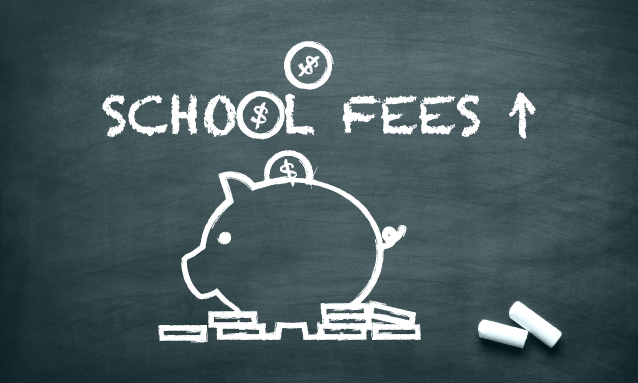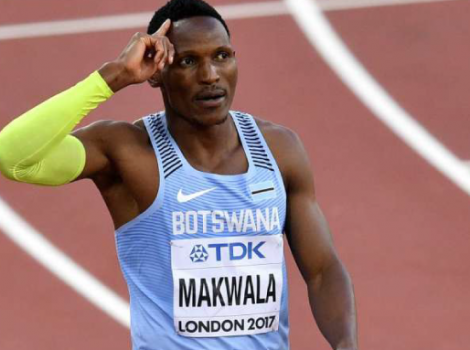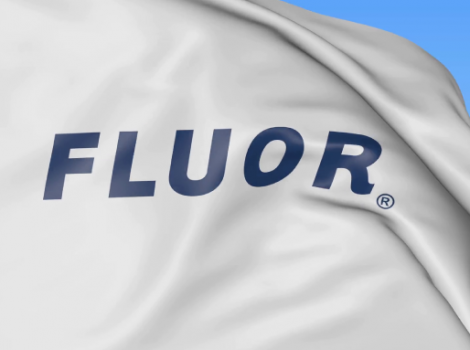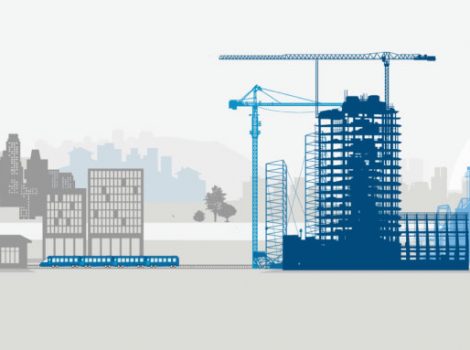
Once again, the news that every parent across Botswana dreads to hear; private school fees have gone up. Discontented with the quality of state school education, a lot of parents in Botswana are resigned to the fact that in order to give their children decent education, they have to shell out extortionate fees.
Botswana private school fees reportedly remain unregulated despite calls by the government to put policies in place to ensure that fees are affordable for parents. A survey of private school fees conducted by The Midweek Sun has revealed what we already knew – but far worse. Parents have to have very deep pockets or be able to borrow truckloads of money just to provide their children with what they perceive to be decent education.
The Midweek Sun findings reveal that average school fees for a “prestigious” private school (widely known as English Medium Schools in Botswana) is P10,000 (excluding “development” fees which range between P2,000 and P20,000 per child).
The most expensive private schools include Maru-a-Pula, Westwood, Northside Primary School, Broadhurst and Thornhill in Gaborone, Delta Waters in Maun and Kgaswe in Palapye. Not surprisingly, most of the schools have a high enrolment of expatriates.
The least expensive private schools include Legae Primary School, Letlhabile Primary and St Mary’s Primary School; with fees ranging between P4,000 and P7,000 per term and a development fee of between P1,000 and P2,000.
What exactly are you paying for?
Most, if not all private schools in Botswana follow the British curriculum and offer the international GCSEs known as IGCSE; widely believed to be one of the most advanced worldwide. Students also enjoy extracurricular activities including swimming and advanced computer lessons, which remain a distant dream for students in state schools.
According to the Midweek Sun, attempts by the newspaper to speak to several schools hit a snag, although it quoted an official at one prestigious Gaborone school who spoke on condition of anonymity. The official stressed that education is an expensive business to run, which explains the inflated fees.
“Parents pay for quality; it is value for money. On the one hand, there is the noble gesture of giving young people a good start in life through moulding them to be enterprising, free thinking and employable individuals in society, but the school also has to make money to cover operating costs and enjoy profits.”
The source cited rentals, water, electricity as well as transport, teachers and other staff salaries as some of the factors that contribute to the high cost of running private schools. The source further said that the onus is upon parents to make informed decisions about their children’s future.
“Education is holistic; you don’t just take a child to school and expect miracles; the home environment and involvement of teachers are also key. I find that supporting a child’s education process and investing in tools that make the learning process more enjoyable and easier, pays off in the end, regardless of whether you take your child to a government or private school.”
Struggling parents feel the pinch
Many financially comfortable parents can pay the required amount without batting an eyelid. Some are in such cushy jobs they don’t have to dip their hands in their very deep pockets because their employer takes care of that for them as part of their generous pay packets. However, the credit crunch from which we’re still struggling to recover means many households are having to tighten their purse strings.
Many parents wish they could afford the fees but simply struggle to because they don’t earn enough, salaries have stagnated and the cost of living continues to soar. Sadly, the ridiculously extortionate fees are slowly squeezing out the average Motswana, effectively leaving many local parents between a rock and a very, very hard place. Some are resigning themselves to pulling their children out of private schools and back to state schools, the quality of which continues to deteriorate. In a bid to give their children a good start in life and broaden their horizons, parents then have to shell out for extracurricular activities because these are ‘luxuries’ that state schools do not offer.
A bird’s eye view of Gaborone primary school fees (private) – 2018 school fees update:
| Westwood International School P19,600 per term (P58,800 annually Development levy P20,000 (one-off fee) |
| Northside Primary School P18,700 per term (P56,100 annually) Development Levy P18,700 (one-off fee) |
| Thornhill Primary School P18,600 per term (P55,800 annually) Development Levy P7,500 (one-off fee) |
| Broadhurst Primary School P18,270 per term (P54,810 annually) Development levy P5,000 (one-off fee) |
| Rainbow Primary School P11,490 per term (P32,800 annually) Development levy P1,500 (one-off fee) |
| Baobab Primary P10,780 per term (P32,340 annually) Development Levy P1,500 (one-off fee) |
| The Learning Centre P10,500 per term (P31,500 annually) No Development Levy |
| Hillcrest Primary P10,200 per term (P30,600 annually) Development Levy P1,000 (one-off fee) |
| Tlokweng Day Spring P8,000 per term (P24,000 annually) Development Levy P1,000 (one-off fee) |
| Legae Primary School P8, 000 per term (P24,000 annually) – Development Levy P1,000 (one-off fee) |
| Botlhale Primary School P7,900 per term (23,700 annually) Development Levy P1,000 (one-off fee) |
| Gaborone International School P7,620 per term (P22,860 annually) Development Levy P1,500 (one-off fee) |
| Letlhabile Primary P7,600 per term (P22,800 annually) No Development Levy |
YourBotswana View
To be honest, news of skyrocketing private school fees isn’t that shocking to me because I see this happening across the world. However, I must admit that while I appreciate the benefits of private education, I’ve always thought it was way too expensive; and whether by chance or design, promotes elitism. Let’s face it, privately educated people are often seen as more eloquent, they tend to be viewed more favourably and their educational background often opens doors that remain firmly closed to their poor state school educated ‘cousins’.
So whether or not you agree with private education, as a parent, you want to ensure that your child has better opportunities in life than you ever did. And if the answer to that is private education, many Batswana parents will do almost anything to ensure their children have access to it. What I find shocking, however, is the idea that the government apparently doesn’t regulate the cost of private education in Botswana. I’m not sure about the validity of that claim, but if it IS true, it’s a crying shame! No wonder Botswana private schools continue to take liberties.
What Rwanda has done to address the same situation
I recently read with great interest, a 2017 article about Rwanda private schools being forced to close ‘due to low patronage’ and couldn’t imagine the same thing happening in Botswana.
According to the report; Rwanda, a country I’ve developed a keen interest in due to the alarming rate at which it’s been making great strides in recent years, developed a twelve-year basic education policy which made state schools the more attractive and affordable option… shock horror!
The Ministry of Education invested hugely in expanding capacity and teaching infrastructure at public schools across the country; introduced the school feeding programme and abolished school fees, making state schools very attractive to hordes of Rwandan parents.
Off the back of that, over 30 private schools reportedly closed indefinitely in 2017, while others were struggling to stay afloat after losing students to public schools.
School owners told Rwanda Today that those that did manage to remain open were struggling to meet their operational costs. One was a quoted as saying;
“We’ve suffered a sharp decline in the number of students enrolled, yet the school has accumulated debt, unpaid salaries and owes arrears to suppliers. It is not clear if the school will re-open.”
The school had suffered a huge blow when the number of students dropped from 900 to a paltry 80 students after it failed to attract new students, while others enrolled in public schools.
Figures submitted showed that private school student numbers fell sharply from 101,510 in 2012 to 79,076 in 2017, while enrolment in public and government-aided schools almost doubled in the same period.
Now imagine if that happened in Botswana! Could Botswana state schools ever compete with private schools? Botswana is doing some of the things that Rwanda is doing i.e investing heavily in education, not charging school fees, providing school meals etc So I’m not sure where it’s all going wrong! One thing I do know though, is that right now, I have a bad case of ‘country envy’ and that country is Rwanda, which is going through a transformation so big that I wouldn’t be surprised if it soon became the envy of all Africans, leaving in the shade a few countries who had a generous head start of Rwanda.
Reference: The Midweek Sun, Tumy Modise™, newspeakonline.com




mhh i wanna school at Mophato but i dont know the fee